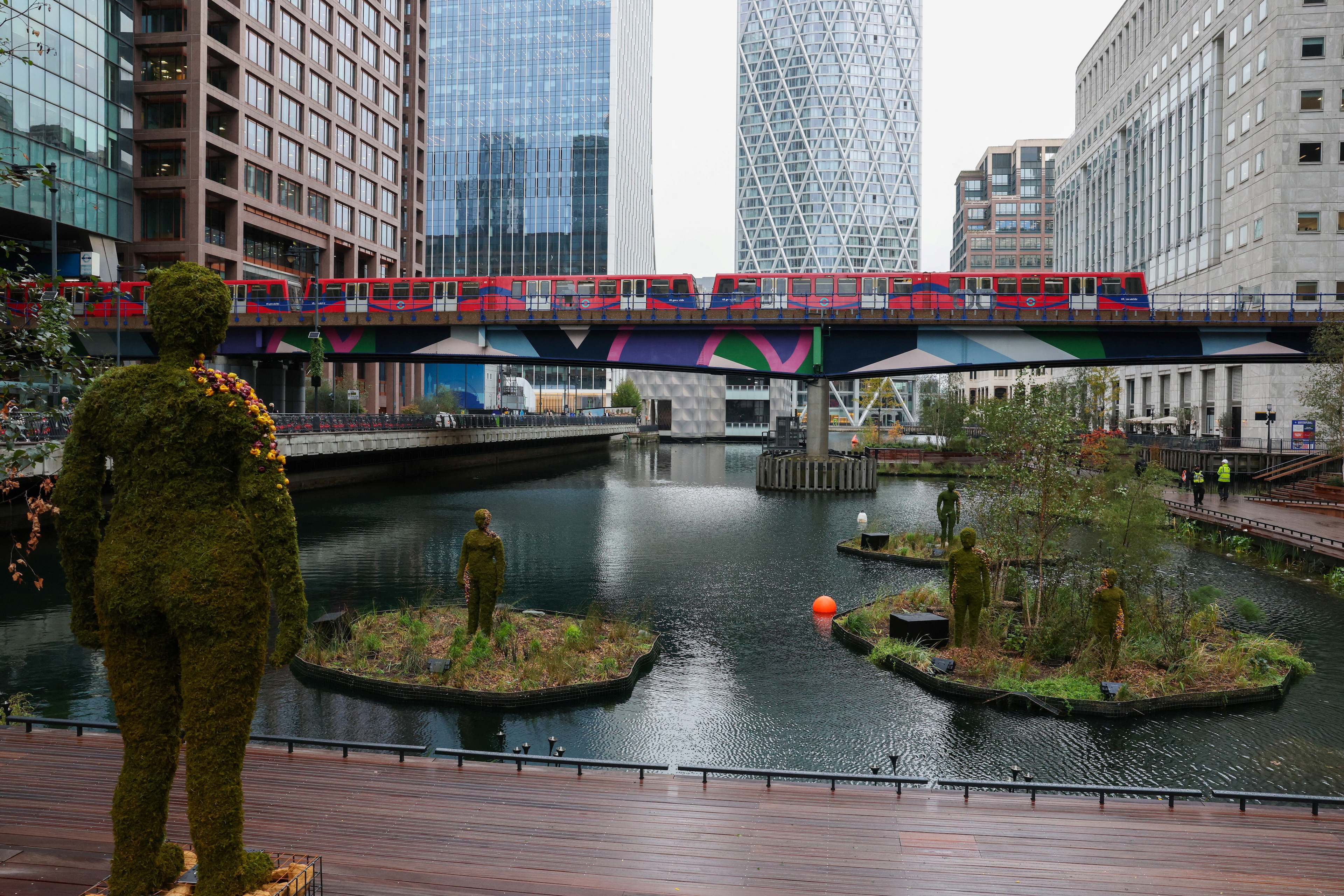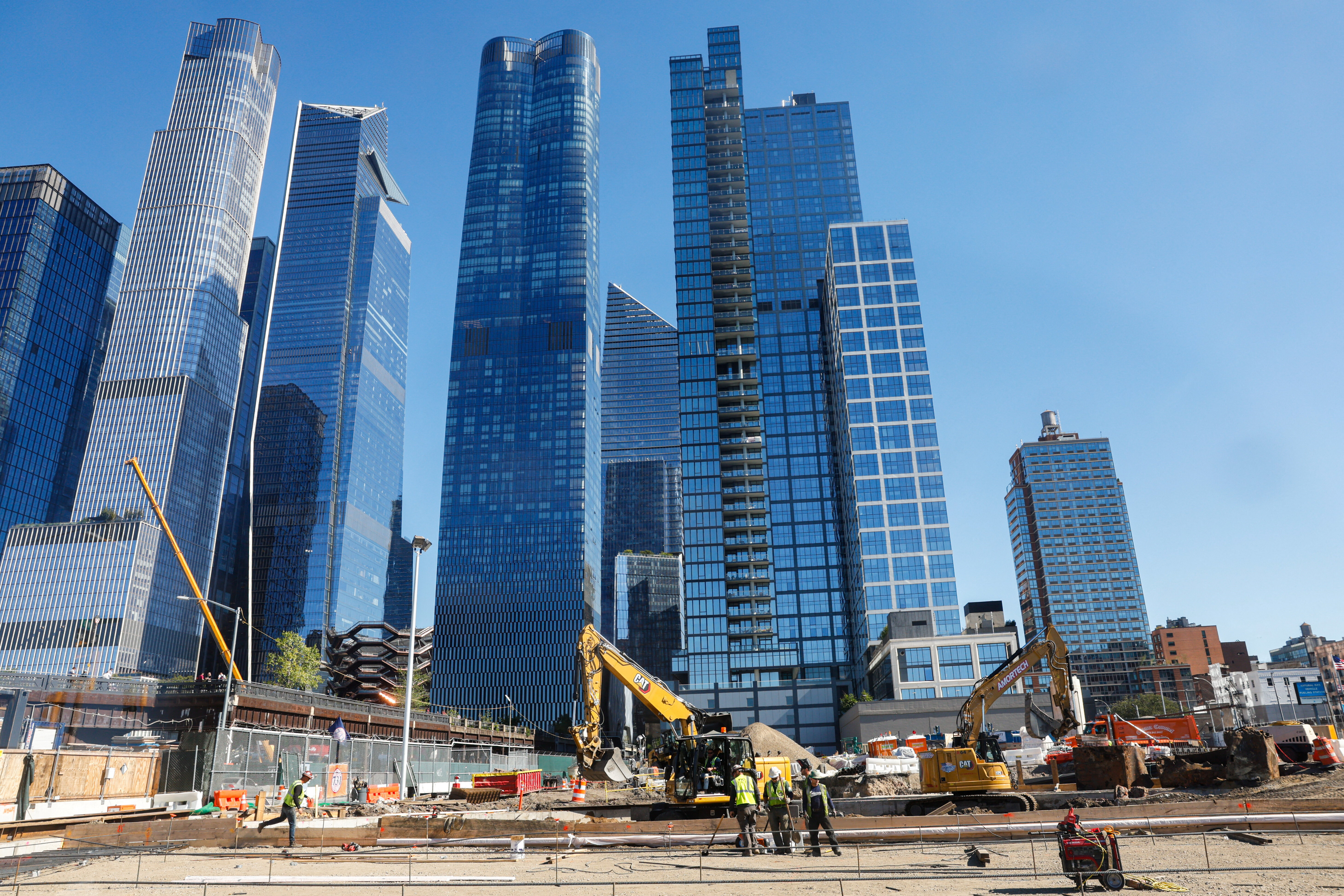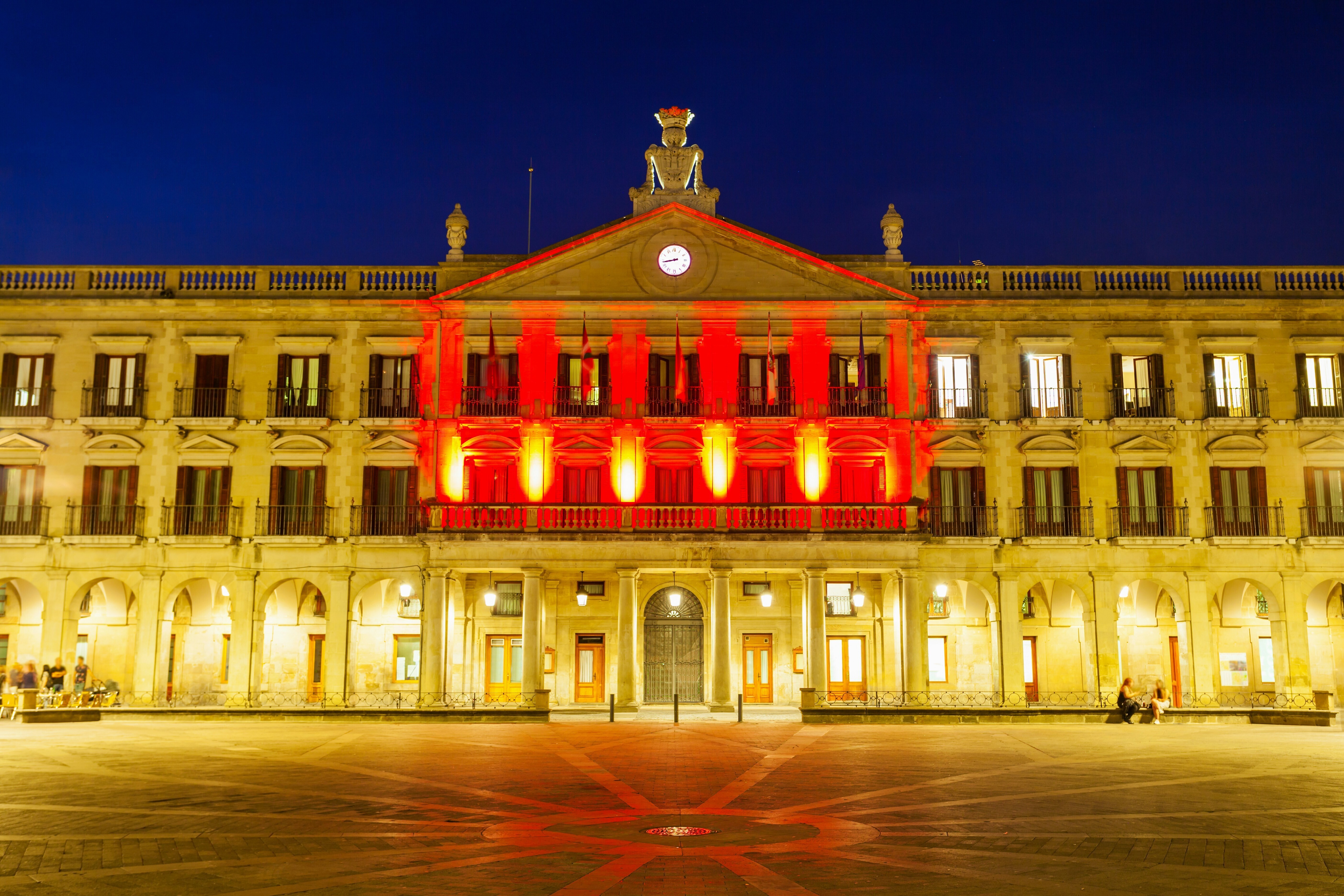Innovation-first purchasing at the city level can scale climate adaptation

Smart use of cities' budgets can move the needle on climate adaptation.
Image: REUTERS/Kevin Coombs
Muhammad Al-Humayed
Project Lead - Smart Cities, Centre for the Fourth Industrial Revolution Saudi ArabiaStay up to date:
Innovation
- Cities often have sizeable budgets than can be strategically leveraged against issues like climate change.
- Innovation-friendly procurement in city budgets holds real potential.
- The G20 Global Smart Cities Alliance has developed two new resources for city officials to take action now.
Smart, innovation-friendly procurement is a vital strategic instrument, enabling municipalities to harness the ingenuity of the market to address their most pressing challenges, from climate adaptation to public health and social equity.
The G20 Global Smart Cities Alliance's Innovation-Friendly Procurement Model Policy and supporting Digital Assessment tool on innovation procurement are designed to demystify innovation procurement and provide a clear roadmap for cities.
Cities are on the frontline of the climate crisis, facing escalating risks from extreme weather, rising sea levels and environmental degradation. This dual role – as both significant contributors to global emissions and areas acutely vulnerable to climate impacts – underscores an urgent need for rapid, transformative innovation in our urban systems.
The good news is that a new generation of solutions is emerging, from ultra-low-carbon construction materials made from recycled waste to AI-powered, self-healing energy grids and intelligent flood control systems that improve operational efficiency by over 45%.
These pioneering technologies, alongside scaleable nature-based integrations seen in initiatives like Bee Bus Stops, which enhance biodiversity and manage stormwater locally, offer tangible pathways to resilience and sustainability.
The successful integration of such innovations into the fabric of our cities hinges on more than just technological breakthroughs. City leaders are increasingly recognizing that their annual procurement spend – often billions of dollars – is not just an operational cost, but a powerful, strategic lever to drive this innovation, achieve climate resilience, and deliver better public services. A shift to smarter, innovation-friendly procurement can unlock this potential and build more sustainable, inclusive, resilient and liveable cities.
From transactional purchasing to strategic impact
Traditional public procurement, with its emphasis on rigid specifications and lowest-cost bidding, often stifles innovation and locks cities into outdated solutions that do not address the evolving needs of urban environments. This approach is ill-suited to tackling complex, evolving challenges like climate change, where novel technologies and adaptive strategies are paramount. The result is that, too often, promising pilot projects often fail to reach scaled deployment, leaving impactful solutions in a "valley of death" between initial success and widespread adoption.
A more effective path lies in innovation-friendly procurement: an approach that focuses on clearly defined outcomes rather than prescriptive solutions. Insights from the G20 Global Smart Cities Alliance Taskforce on Innovation-Friendly Procurement, at the Centre for Urban Transformation, highlight two indispensable factors for success:
1. A clear route to scaled deployment: Innovation initiatives must be designed with a pathway to wider procurement and implementation from their very inception. This way, promising solutions can avoid languishing in the pilot phase.
2. Engagement of problem owners: Service delivery managers and their teams – those who will own and operate the solutions – must be central to defining the problem and co-creating the procurement strategy. Their early buy-in and practical expertise are vital for overcoming internal barriers and ensuring solutions are fit-for-purpose.
This can involve a suite of approaches, such as Challenge-Based Procurement, where cities define a problem and invite diverse market solutions, and Pre-Commercial Procurement (PCP), which allows public bodies to co-fund the R&D of solutions not yet on the market. Innovation partnerships that foster long-term collaboration between buyers and suppliers to co-develop and implement novel solutions can also play a role. Outcome-based contracts, dynamic purchasing systems and framework agreements further enable cities to remain agile and responsive as technologies evolve.
In addition, legal and regulatory frameworks must also adapt, providing flexibility for innovative procurement while upholding transparency and fairness. Clear intellectual property arrangements are essential to encourage supplier participation and ensure public value.
Building capacity within procurement teams is also critical. Training in market engagement, risk management and innovation assessment, along with cross-departmental collaboration, ensures that cities can effectively identify and scale the best solutions. Early and open market engagement through, for instance, hackathons or innovation challenges attracts a diverse range of suppliers, including start-ups and SMEs, thereby expanding not only the pool of potential innovative solutions, but also the pool of suppliers.
Cities are leading the way
Several cities are already demonstrating the power of this strategic shift. These include:
An outcome-based approach for cleaner air, London, UK
To combat persistent air quality issues stemming from commercial cooking emissions, London’s Westminster City Council embraced an outcome-based procurement model. Supported by the Innovation Procurement Empowerment Centre (IPEC), which provided crucial training and guidance, the council defined the desired outcome.
“While working with Westminster, we supported the council in defining a clear outcome: reducing air pollution from cooking oil and used innovation-friendly procurement to enable market-led solutions. By embedding our team, providing training, supporting market engagement and designing a route to market for future scaling, we helped catalyse a successful collaboration with Health 360. This is one example of how public procurement, when focused on outcomes and early market engagement, can help cities and places scale innovation to address complex urban challenges,” said Rikesh Shah, Head of the Innovation Procurement Empowerment Centre, Connected Places Catapult
Smart ring buoys to save lives in Dublin, Ireland
Dublin, in collaboration with Water Safety Ireland and the Department for Rural and Community Development, has launched an innovative Smart Ring Buoys project with the goal of saving lives on the country's waters.
“Every week, ring buoys go missing or are tampered with in Dublin. Smart Dublin used an Innovation Procurement process to explore new low-cost sensor technology to provide real-time alerts when life buoys are stolen or tampered with. The Ring Buoy project piloted several innovative solutions which led to the procurement of the best solutions. The procurement process created a framework where multiple Irish Local Authorities could procure their preferred solution,” said Alan Murphy, Regional Manager, Smart Dublin.
Sustainable procurement processes in Jubail, Saudi Arabia
Jubail, an industrial city in Saudi Arabia, is focusing on embedding a dual focus on sustainability and innovation in its procurement approach, particularly when it comes to building up new infrastructure.
“In Jubail Industrial City, we view technology not just as a tool, but as a catalyst for sustainable urban development. By integrating sustainability standards into our procurement processes, we have embraced innovative solutions that reduce environmental impact, maximize resource efficiency, and improve the overall quality of life for our residents. This innovation-driven approach to procurement positions us to lead in building future-ready infrastructure while advancing the Kingdom’s national sustainability and smart city goals.” said Amer Shafiq Amer, Business Solutions Director, Royal Commission of Jubail and Yanbu.
Engineering city-wide water resilience, Copenhagen, Denmark
Copenhagen, historically vulnerable to urban flooding, has embedded climate adaptation into its core urban development strategy, driven by its environmental and planning departments. Through competitive tenders focused on "green" and "blue" nature-based solutions, the city has partnered with specialist design firms to reimagine its public spaces.
The experiences of pioneering cities offer the following actionable insights for urban leaders:
- Define outcomes, not specifications: Unleash market creativity by framing needs as challenges rather than prescribing solutions.
- Empower service delivery teams: Involve problem owners from the outset to ensure solutions are practical and widely adopted.
- Design for scaled deployment: Embed a clear pathway to city-wide procurement in all innovation initiatives, moving beyond isolated pilots.
- Foster strategic collaboration: Actively partner with innovation ecosystems, academia, and other public bodies to share expertise and de-risk projects.
- Build specialized procurement capacity: Invest in developing skills for challenge-based, outcome-driven, and tech-savvy public purchasing.
- Establish a smart data foundation: Ensure robust data infrastructure is in place to support advanced solutions and data-driven procurement decisions.
Models and tools for city leaders
Recognizing these successful approaches and the need to systematize global best practices, the G20 Global Smart Cities Alliance has developed two pivotal, free-to-access resources for city officials, in collaboration with the Connected Places Catapult and the Centre for Fourth Industrial Revolution Saudi Arabia. These resources provide a clear roadmap for city leaders of all sizes and capacities.
The Model Policy for Innovation-Friendly Procurement: This provides a comprehensive, adaptable framework that city administrations can use to establish clear rules and processes that encourage innovation.
The Digital Self-Assessment Tool on Innovation Procurement: This user-friendly online tool enables city officials to quickly evaluate their current innovation procurement maturity, identify strengths and weaknesses, and receive tailored recommendations for improvement.
By embracing forward-thinking procurement strategies, municipalities can maximize the impact of taxpayer contributions, deliver higher-quality services and build a more sustainable, resilient and prosperous future for their citizens.
The journey begins with a mindset shift, recognizing procurement not merely as a cost centre, but as a powerful catalyst for positive change that will foster economic resilience, equitable growth, and sustainable urban ecosystems for existing and future generations.
Don't miss any update on this topic
Create a free account and access your personalized content collection with our latest publications and analyses.
License and Republishing
World Economic Forum articles may be republished in accordance with the Creative Commons Attribution-NonCommercial-NoDerivatives 4.0 International Public License, and in accordance with our Terms of Use.
The views expressed in this article are those of the author alone and not the World Economic Forum.
Related topics:
Forum Stories newsletter
Bringing you weekly curated insights and analysis on the global issues that matter.
More on Urban TransformationSee all
Jeff Merritt and Vivian Brady-Phillips
November 6, 2025
Jeff Merritt and Andras Szorenyi
November 3, 2025
Marielle Anzelone and Georgia Silvera Seamans
October 31, 2025
Antonio Gómez-Palacio
October 31, 2025
Børge Brende and Ahmed Al-Khateeb
October 29, 2025




